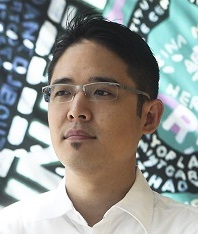Jay Chen

Senior Researcher at the International Computer Science Institute in Berkeley, California
Jay Chen is a Senior Researcher at the International Computer Science Institute (ICSI) in Berkeley, California. His research over the past decade and a half has primarily focused on designing, building, deploying, and evaluating networked systems in developing regions. His impact-oriented projects have been piloted in schools, hospitals, and other organizations in South Asia, Africa, and South America to improve information access and support local services. Coming to sustainability from a background in Information Communication Technology for Development (ICTD), his work attempts to broaden the conventional conception of sustainability beyond its parochial techno-utopian, Global North, and macroscopic perspective. His research interests are at the intersections -- between technology and society, research and action, and sustainability and development.
Panel Debate: Exploring the future of research and Science: what are the opportunities and challenges of degrowth?
Our contemporary society has been built and evolved for several centuries in the context of the Holocene. Since the last fifty years, we have entered the Anthropocene, changing the long-term conditions of life on Earth. Yet, even if we can agree on the fact that socio-economic models of Western societies have to evolve to avoid going above planetary boundaries, we rarely discuss the impacts on research and Science if we were to switch for degrowth models. Indeed, if the whole society starts implementing degrowth at a large scale, what would be the implications for research and Science ? In this panel discussion, we will investigate the opportunities and challenges of degrowth on research and academic practices, e.g., at the individual, collective, and institutional level.
In order to generate the questions for the panel, participants will experience a collective intelligence activity known as ``World Cafe''. By proposing several tables of discussion focusing on a specific aspect of the panel topic, this aims at stimulating all participants to actively take part to the debate by formulating key questions together. We will turn the topic upside down by touching upon the KPI in research, the neutrality of Science, or the definition of post-growth research, just to name a few.
In order to generate the questions for the panel, participants will experience a collective intelligence activity known as ``World Cafe''. By proposing several tables of discussion focusing on a specific aspect of the panel topic, this aims at stimulating all participants to actively take part to the debate by formulating key questions together. We will turn the topic upside down by touching upon the KPI in research, the neutrality of Science, or the definition of post-growth research, just to name a few.
Watch the panel here !
Talk 2021: Computing, Limits, and Society
Technologists are often seen as inventing the future. However, a great deal of our efforts focus on one particular type of future, one very much like the present, only more so. This vision of the future assumes that current trajectories of ever-increasing production and consumption will continue. But humanity collectively faces new global conditions that warrant our attention; we are rapidly approaching, or have already exceeded, a variety of planet-scale limits related to the global climate system, fossil fuels, raw materials, and biocapacity. Many believe that we can solve these problems if we pool our creative resources. In this talk, I’ll explore the hidden assumptions about the future that are embedded in most computing research and what work should be done to respond to challenges that global society faces.
Watch the talk here !
